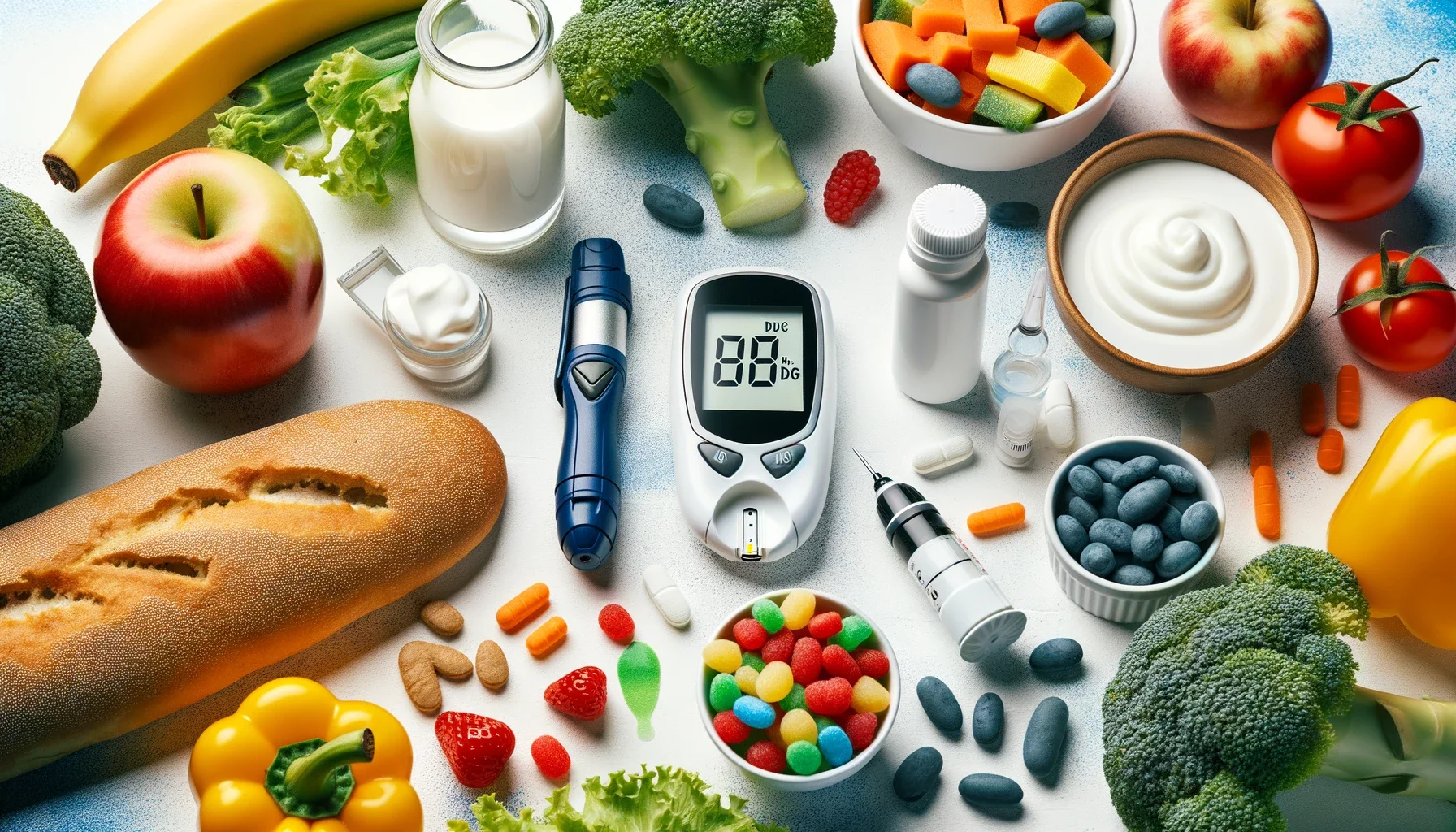
Diabetes is a growing global health concern, affecting millions of people each year. It occurs when the body is unable to regulate blood glucose levels effectively, leading to various health complications.
What is Diabetes?
If you have diabetes or if you are at risk of developing the condition, your blood glucose levels are higher than normal. The glucose in the blood comes from the food that the individual consumes. When the body digests food, it breaks down the sugar and starches present in the food into another type of sugar, which is called glucose. This glucose is then released into the bloodstream. Blood sugar, also known as blood glucose, comes from the food you eat. Blood sugar is used for energy. The cells of your body need glucose for energy. A hormone called insulin helps in metabolizing this glucose, which is then absorbed by the cells of our body for general functioning.

Types of Diabetes
Prediabetes
Blood sugar levels are generally higher than normal but not high enough to be considered or treated as type 2 diabetes. If someone has pre-diabetes, they are more likely to develop or be at risk of type 2 diabetes.
Type-1 Diabetes
In type-1 diabetes, the pancreas produces little or no insulin. Insulin is a hormone that helps regulate glucose levels in our blood. Without enough insulin, glucose builds up in the blood, which results in diabetes.
Type-2 Diabetes
It is one of the major non-communicable diseases that has an increasing prevalence around the world. In this type of diabetes, the body is unable to utilize insulin properly. Eventually, this results in excess sugar, or glucose, in the bloodstream.
Gestational Diabetes
It is diagnosed for the first time during pregnancy, which is the gestational period. Just like other types of diabetes, gestational diabetes affects how your cells use the sugar (glucose) present in your bloodstream. Gestational diabetes causes high blood sugar that can affect your pregnancy and your baby's health.

Diabetes is one of the main causes of premature deaths around the world. Proper management is important so that you can lead a long and healthy life. Changes in lifestyle and diet can greatly reduce your risk for type 2 diabetes.
Lifestyle and diet are changeable and can result in preventing diabetes.
Role of Diet in Diabetes
Diet can be considered one of the vital factors that are presently linked to a wide range of diseases, including diabetes. The amount and type of food we eat play an important role in our health and well-being. The changes in diet should be individual-specific, depending on the age, weight, gender, health condition, and occupation of the person.
The following people are at an increased risk for diabetes:
- Overweight or obese people
- People who have upper-body obesity
- People who have a family history of diabetes
- People who are age 40 or above and women
The research conducted by the American Society for Nutrition suggests that food can be impactful in preventing and reversing diabetes. In the past, the traditional approach to managing diabetes was to focus on limiting refined sugars and foods that release sugars during digestion, such as starches, bread, fruits, et cetera. On the other hand, the reduction of carbohydrates also leads to an unhealthy increment of fat and protein, which does not help with the reversal of diabetes.
What Should you do?
In recent treatment programs, meats, high-fat dairy products, and oils have been reduced. There is a combination of healthy food options and exercise programs that can help you manage diabetes.
Role of Diet

The main objectives of dietary changes include:
- Achieving the optimal or regular blood glucose concentration.
- Achieving normal blood lipid concentration.
- Providing appropriate energy for the person’s weight, normal growth, and development.
- Improving overall health through nutrition and diet.
Dietary management of diabetes most importantly involves changes in the quality as well as the quantity of the food we eat. Here are some tips to manage diabetes better:
- Consume carbohydrates mostly in the form of starch such as maize, rice, beans, potatoes, etc.
- Avoid refined sugars except during severe episodes of hypoglycemia or illness
- Avoid non-nutritive sweeteners as they can result in high blood sugar levels
- Reduce intake of salt
- Avoid smoking
- Also, consume alcohol in moderation, as it plays a huge role in the fluctuations of blood sugar levels
- Reducing weight by cutting down or reducing the serving sizes and calories. This can improve your insulin sensitivity and help manage your blood glucose levels. Including vegetables, fruits, protein, and starches in your daily diet and limiting the consumption of unhealthy fats can help in achieving this goal.

The American College of Sports Medicine and the American Diabetes Association suggest that working out can help you manage Type 2 diabetes, or it can help in the prevention of the condition altogether. There are several long-term benefits of exercising for our blood sugar and insulin levels.
Working out can trigger the uptake of glucose from the bloodstream into the working muscles and organs. This is one of the reasons why experts and doctors agree that people with elevated blood sugar levels can benefit from walks after meals.
Exercise for your blood sugar management is not at all complicated. The guidelines for exercising with people who are diagnosed with diabetes are pretty much the same as the guidelines for exercising with adults.
- People with type 2 diabetes can perform at least 150 minutes of moderate-to-vigorous-intensity(high) physical activity per week. This can ideally result in the management of blood sugar levels in the body.
- Weekly exercise would be spread over three days of the week, with no more than two days passing without some form of activity.
- For those who engage in high-intensity exercise, shorter durations of 75 minutes per week can also be considered sufficient for the workout period.
Conclusion
A healthy combination of exercise and dietary changes can help alleviate diabetes. As discussed earlier, dietary changes involve changes made to the quality and quantity of food we eat. It also includes limiting the portion size and consuming foods that are rich in healthy fats and proteins and low in trans fat and refined sugar. On the other hand, exercising or daily body movement can help in the management of diabetes as well. Exercise can keep your body active and will also help in reducing weight, which might trigger the uptake of glucose. This occurs because of the frequent muscle contractions that are experienced during the workout period.


.png)


